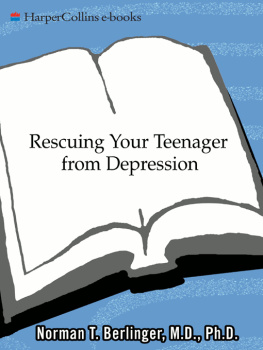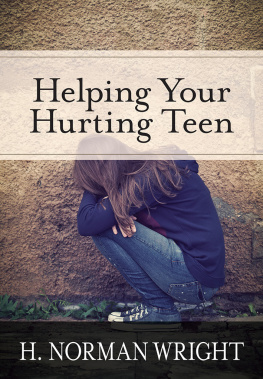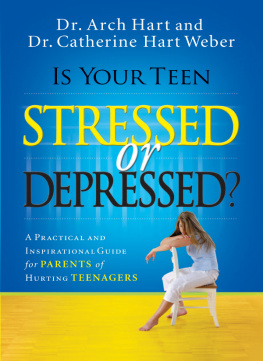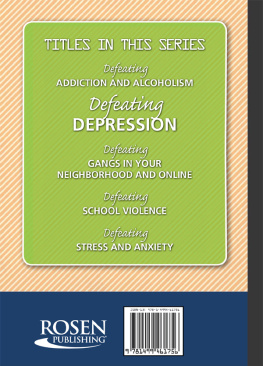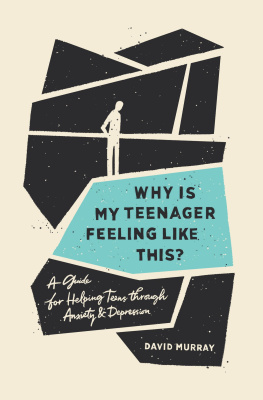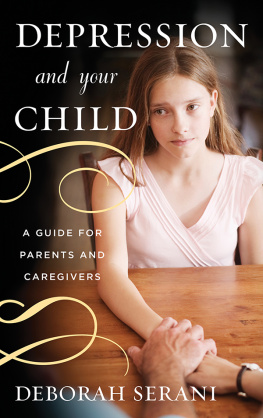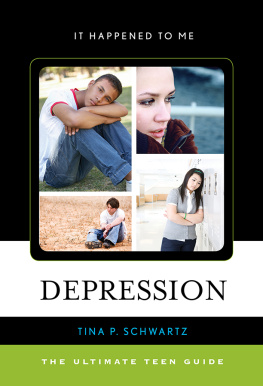Norman T. Berlinger - Rescuing Your Teenager from Depression
Here you can read online Norman T. Berlinger - Rescuing Your Teenager from Depression full text of the book (entire story) in english for free. Download pdf and epub, get meaning, cover and reviews about this ebook. year: 2009, publisher: HarperCollins, genre: Home and family. Description of the work, (preface) as well as reviews are available. Best literature library LitArk.com created for fans of good reading and offers a wide selection of genres:
Romance novel
Science fiction
Adventure
Detective
Science
History
Home and family
Prose
Art
Politics
Computer
Non-fiction
Religion
Business
Children
Humor
Choose a favorite category and find really read worthwhile books. Enjoy immersion in the world of imagination, feel the emotions of the characters or learn something new for yourself, make an fascinating discovery.
- Book:Rescuing Your Teenager from Depression
- Author:
- Publisher:HarperCollins
- Genre:
- Year:2009
- Rating:5 / 5
- Favourites:Add to favourites
- Your mark:
Rescuing Your Teenager from Depression: summary, description and annotation
We offer to read an annotation, description, summary or preface (depends on what the author of the book "Rescuing Your Teenager from Depression" wrote himself). If you haven't found the necessary information about the book — write in the comments, we will try to find it.
One in eight high school students is depressed. But depression in teenagers can be deceptive, and authorities estimate that a huge number of depressed teens are undiagnosed. Adults may mistake symptoms as typical teen angst, anger, or anxiety. Or the teen may mask the symptoms with high-energy activity.
For parents who suspect their teen is depressed, the system often fails the family. Insurance coverage for treatment ends too soon, theres a months-long wait to see an adolescent therapist, or long-term follow-up is insufficient.
This means parents must take charge of their childs health to reinforce, extend, and monitor treatment and its aftermath. The good news is they can do itbecause parents know their child best.
Although a medical doctor, Dr. Berlinger initially missed the signs of his own sons depression. By combining his parental love with his scientific skills, he developed a set of techniques to lead his son out of depression. Now he shares his 10 Parental Partnering Strategies to help parents rescue their teen from depressionbased on his own experiences, nearly 100 interviews with parents of depressed teens, and interviews with mental health professionals.
Increasingly, doctors are asking parents to partner with them to help children get healthy and stay healthy. Partnering has been proven effective in the treatment of other serious emotional illnesses such as anorexia nervosa.
Parents can use Dr. Berlingers strategies to help distinguish depression from moodiness; be alert to suicide risk; monitor medication effectiveness; help the teen combat negative thinking; organize activities to offset depression; and spot signs of relapse during tense times in their childs life, including exams, relationship breakups, or starting college or a job.
Both a family survival story and a practical guide, this book affirms parents unique power to help teens overcome depression.
Norman T. Berlinger: author's other books
Who wrote Rescuing Your Teenager from Depression? Find out the surname, the name of the author of the book and a list of all author's works by series.

